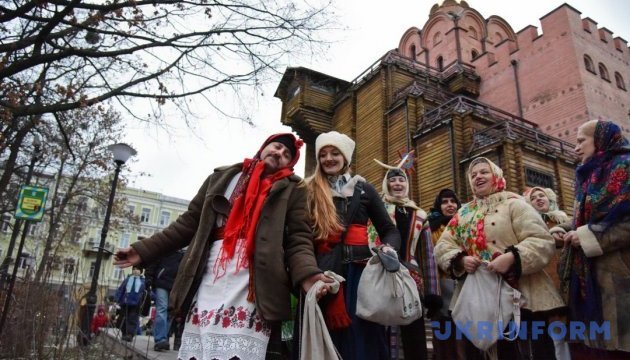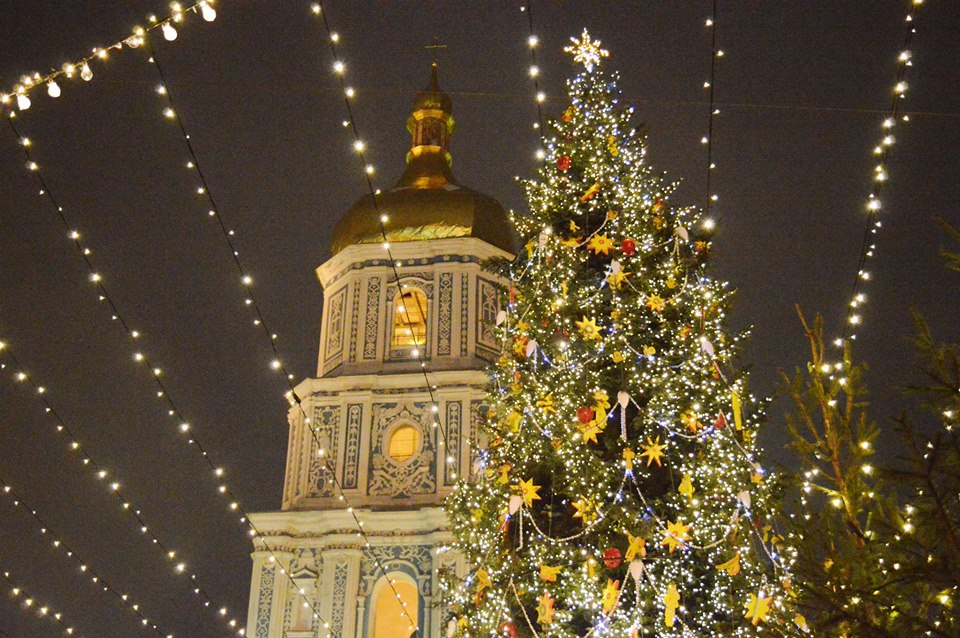The Ukrainian House in Kyiv hosted "Traditions of the Generous Evening" show, Ukrinform reports on 6 January. The event showcased Ukrainian customs and cultural identity while supporting the nomination of generous evening traditions for UNESCO's Intangible Cultural Heritage list.
Marina Kobylynska, co-founder of the NGO Institute of Culture of Ukraine and the project's author, emphasized the importance of cultural preservation, stating, "Imperialism cannot erase a state with historical roots, cultural markers, and identity."
The event featured performances by notable Ukrainian artists Jerry Heil and Artem Pivovarov, accompanied by the NAONI ORCHESTRA. The program included a new arrangement of Mykola Leontovych's Shchedryk known in the West as Carol of the Bells.
The show incorporated traditional elements including fortune-telling ceremonies and festive table arrangements, symbolizing Ukrainian hospitality. Organizers highlighted the importance of passing traditions to younger generations.
The Institute of Culture of Ukraine organized the event as part of the USAID-funded Engage! Civic Activity Promotion Program, implemented by Pact in Ukraine. A portion of tickets was distributed to internally displaced families through the NGO Union of Large Families "Happy."
Generous Evening
The Generous Evening is the tradition, with roots in pre-Christian times, centers around preparing and sharing a bountiful feast, as it is believed that the richer and more diverse the table, the more prosperous the upcoming year will be. A key dish is the generous kutya, a symbolic meal complemented by hearty meat, dairy, and pastry creations.
The evening is marked by lively customs, including costumed performances where participants, often dressed as Malanka, Vasyl, and Kozak characters, visit homes, offering good wishes in exchange for treats. Caroling plays a significant role, with shchedrivky
, songs of generosity, sung on this evening, while koliadky, traditional Christmas carols, feature throughout the holiday season. The night also includes burning bundles of straw, jumping over bonfires, and sowing grain at dawn to symbolize fertility and abundance for the year ahead.
Previously, UNESCO added the Culture of Ukrainian Borscht Cooking to its List of Intangible Cultural Heritage in Need of Urgent Safeguarding on 1 July 2022.
Related:
- The Soviets tried to steal Christmas. Ukrainians are taking it back
- Inside Ukraine’s lost sovereignty battle that created world’s favorite Christmas song
- UNESCO recognizes Ukrainian kobzar-lirnyk traveling minstrel sage tradition as heritage of humanity
- Crimean Tatar ornament now part of UNESCO World Intangible Heritage list





